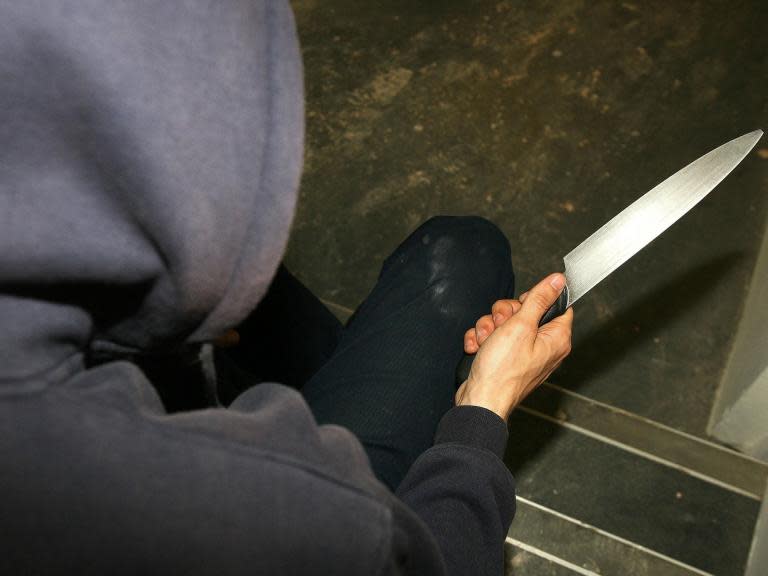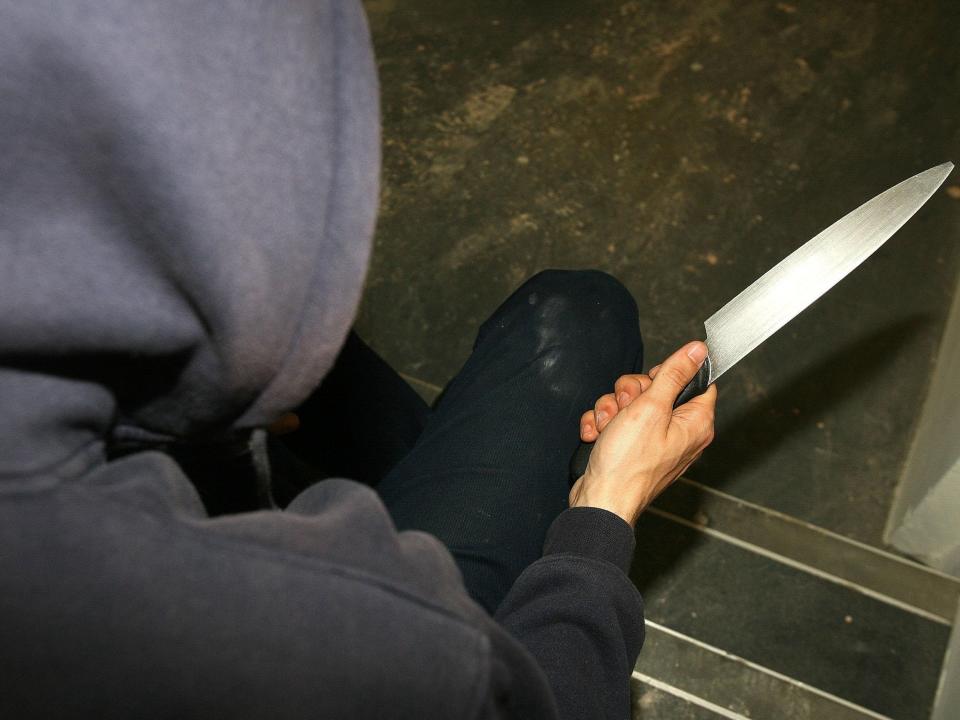Harsher sentences ‘failing’ as knife crime surges to another new record, campaigners say
Knife crime has surged to a new record at the same time as criminal punishments have increased, prompting claims ministers are responding with “sticking-plaster solutions” that are "not a cure for serious youth violence".
Bladed and offensive weapon offences dealt with by the criminal justice system in England and Wales are at their highest rate since 2010 at 22,041, marking an increase of more than a third in just four years, new government data shows.
Meanwhile, the average prison sentence for knife offenders has risen 47 per cent over the past decade, from five months to eight months, while the proportion jailed immediately has risen from a fifth (22 per cent) to 37 per cent in the same period.
The data also shows a surge in cautions and convictions among children and young people, with the figure rising by almost half (48 per cent) in the four years to March 2019, while the increase in adult offenders over the same period was smaller at just under a third (31 per cent).
Politicians and youth charities said the figures showed harsher sentencing was not helping to reduce violence, particularly among young people who they said were often suffering trauma, being excluded from mainstream education and sometimes being groomed by older criminals.
Tom Isaac, of Oasis Youth Support, which works in a paediatrics unit in South London, said: “We need to understand that harsher sentences are not a cure for serious youth violence. For many of the young people we work with, prison isn’t always the deterrent we might assume.
“Do we really believe that success as a society is having a greater number of young people from deprived, underprivileged and vulnerable backgrounds behind bars? What we need is restorative justice.”
Vicky Foxcroft, Labour MP for Lewisham and Deptford and chair of the parliamentary Youth Violence Commission, said the data demonstrated that the government’s approach to knife crime “just isn’t working” and called for ministers to adopt a “public health approach” to the issue.
“The government needs to move from rhetoric to action and introduce a comprehensive public health approach to tackling violence - increasing community policing, youth work and early years intervention and developing our understanding of the impact of ACEs (Adverse Childhood Experiences) on our young people,” she added.
“A public health approach has economic benefits too. The cost of early intervention and prevention is miniscule in comparison to the cost of knife crime to the judicial and penal system.”
Barnardo’s chief executive Javed Khan said that in order to break the cycle of violence, minister must resist “sticking-plaster solutions”.
He added: “Rising knife crime is a tragedy, especially as victims are often young people. But knife crime is a symptom of a much bigger problem. When young people feel there is little or no possibility of a positive future, what we call a ‘poverty of hope’, they are vulnerable to exploitation and criminality.
“The government urgently needs to work with charities, education, health, youth workers, the criminal justice system and local communities to find long-term answers and restore children’s hope, so they have a reason to turn away from crime.”
Justice Minister Robert Buckland said the government was committed to doing "everything in its power" to stop knife crime and its "devastating consequences".
“These figures show that if you are caught carrying a knife you are more likely to be sent to prison – and for longer – than at any time in the last decade," he added.
“But we are doing more – the government’s Offensive Weapons Act will make it harder for young people to buy knives and help the police target those most at risk of being drawn into serious violence.”

 Yahoo News
Yahoo News 

